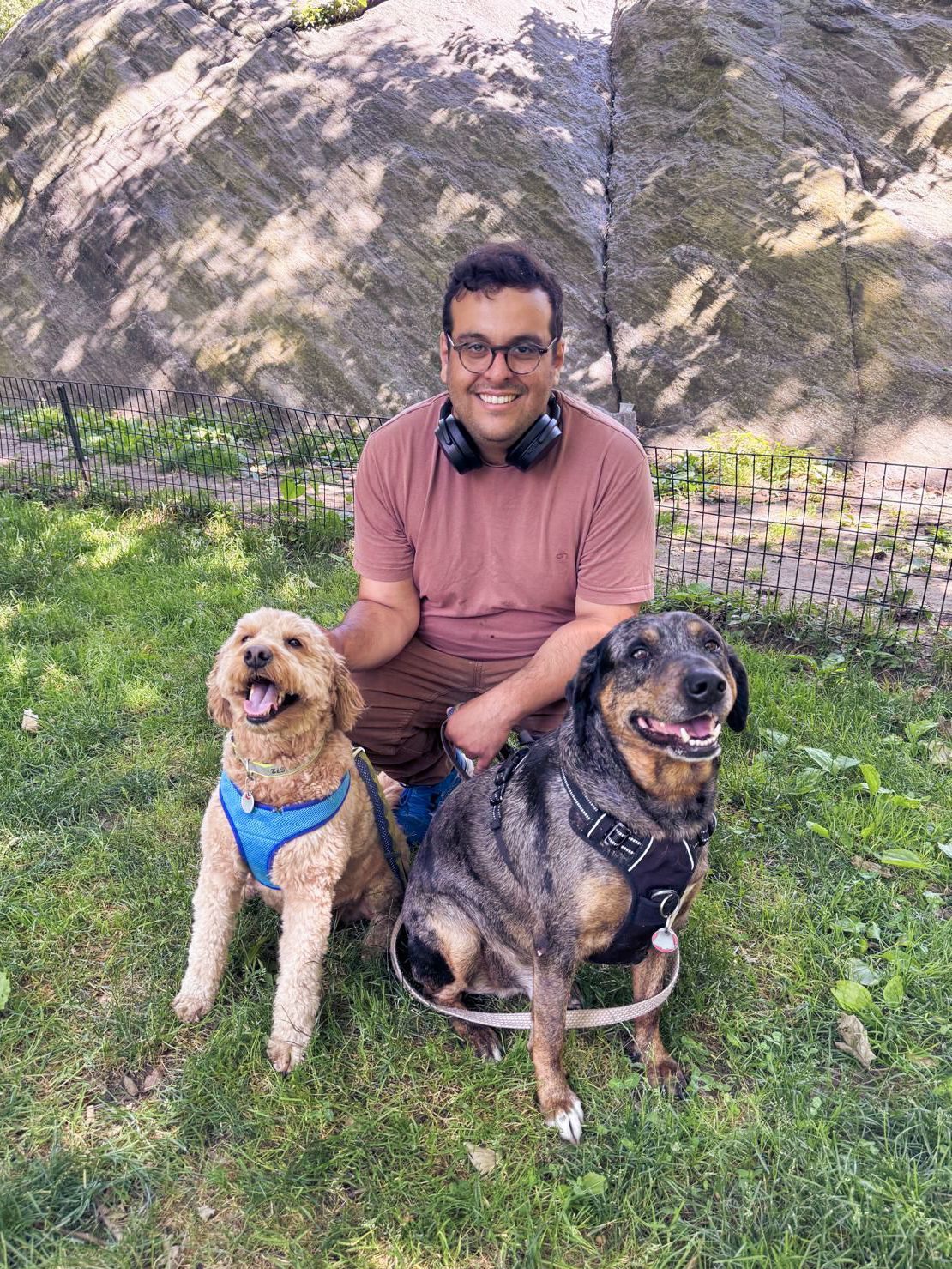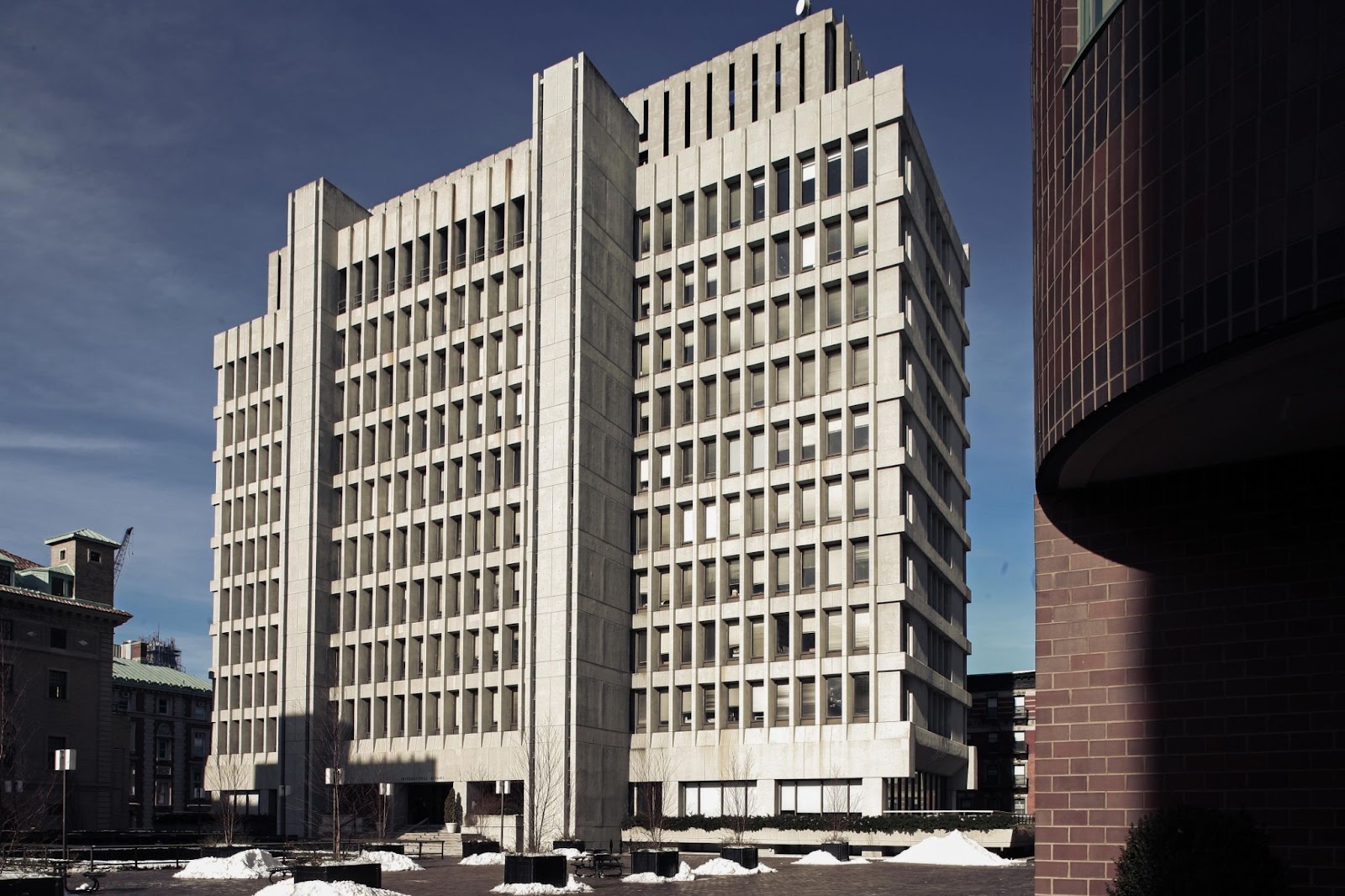Alexandre’s story of navigating financial hardship during his studies highlights how one of the world’s elite institutions is unprepared to support underprivileged students.

Alexandre’s first day walking dogs in the summer of 2024, taken by the friend that referred him to the dog owners
By Felipe Ferreira Lopes, a Graduate Student at Columbia University, completing a Master Degree in Public Administration
When Alexandre won a postgraduate scholarship to study at Columbia University, he felt he had entered the elite. However, the reality of international student finances shocked him: he spent his first year struggling with delinquent rent, borrowing money, and desperately searching for a legal work-study job but unable to find one.
“The processes are designed to exclude people with no money, and nobody seems to care,” he said. Columbia recruits students from all over the world, including those from economically disadvantaged backgrounds like Alexandre. However, reality often falls far short of what is promised when they arrive in New York City. “I encountered the same educational system designed for the children of the American and global aristocracies,” he said.
Alexandre’s two years as an international master’s student at Columbia University have been marked by financial struggles, highlighting systemic barriers for underprivileged students in an institution made for the global elite, despite people from all around the world being attracted and admitted into the programs,” he said. Hailing from Northeast Brazil, Alexandre represents a small group of underprivileged students at Columbia’s School of International and Public Affairs (SIPA). I met him during his first week of classes through Columbia’s network of Brazilian students.
Since arriving in New York City, Alexandre felt he was battling Columbia’s system. “I felt more supported in the university I attended in Brazil, even though Columbia has way more resources”, he said. Alexandre studied at UFPE, a public university in Pernambuco, his home state in Brazil, and left the country for the first time to move to New York City in the summer of 2023, counting on the opportunity to migrate post-graduation to repay his student loan. SIPA’s website boasts graduate median salaries between $73,000 -103,000 – a fortune in Brazil.
However, Alexandre’s journey was complicated from the start. SIPA required him to take a one-month English course for students with “minimum but not desired” proficiency scores. “SIPA increased my costs by $8,000 without ever considering how this would affect me. It completely messed up my school experience”, he said. 95% of his tuition was covered by a scholarship from a Brazilian foundation and he took a loan Columbia offered for living expenses, capped at SIPA’s estimates of its program living expenses – around $62,000 for four terms. Alexandre wasn’t able to increase his loan to accommodate the extra $8,000 and began school already in deficit. “I didn’t have an option and bet I would be able to get a campus job to compensate for what I had lost,” he said. As an international student, he was only authorized to work on campus.

Columbia’s School of International and Public Affairs building, taken by Richard Anderson and edited by Felipe Lopes
As classes started, Alexandre discovered most on-campus jobs were taken by second-year students who had earlier access to opportunities. No financial-need criteria are formally analyzed to select students for the jobs. Some do it to earn extra money to go out partying; others need it to afford groceries and rent. Alexandre completed his first term without being able to find an income source.
“Knowing I hadn’t figured out how to get money disrupted my education. I was anxious and wasn’t able to focus on my studies. It affected my grades,” he said. He felt the $8,000 gap keenly in the second term, when he couldn’t make rent for months. “I was lucky to be in student housing,” he said. “It is harder to be evicted.” The institution does not guarantee housing for international students, nor does it consider the financial needs of the student in the selection process. In reality, the process works against the underprivileged, as incoming students that are able to pay a $2,000 tuition advancement earlier benefit from higher chances of getting housing.
Compounding his challenges, Alexandre’s laptop broke, and he couldn’t afford a new one for weeks during the end of the term. Columbia’s administration had closed campus due to student protests, so he had limited access to school facilities. By the end of spring, Alexandre wasn’t able to find a paid summer internship like some of his colleagues. He felt hopeless. “Employers seem to prefer people with previous US or international work experience, which was not my case,” he said. SIPA does not include summer living expenses in its cost estimates. Apparently, students are expected to return to their home countries as an alternative to the internship, which would imply an extra transportation cost not accounted for.
At the end of spring, some financial breathing space suddenly came from an unexpected source. A friend that was moving back to Brazil referred him to two wealthy women who needed a new dog walker, a job the friend had been doing for the past three years. “It felt like an angel’s hand reaching out to help me,” Alexandre said. “I mean, it still wasn’t enough to cover my rent, but it was already something”. The friend, also from an underprivileged background, had received the referral by chance from a graduating student in his first week of school.
Alexandre started to earn around $35 per hour walking dogs, totaling about $300 per week. Dog-sitting paid him better, $50 to $100 per night. He excitedly recounted the time he babysat two dogs for 10 days and earned $1,000. He has been spending lunch time walking dogs ever since. Each day he takes the subway to Columbus Circle, goes up into a luxurious apartment facing Central Park, prepares the dogs, walks them for an hour, takes them back and returns to his school commitments.
Entering his second year, Alexandre faced more financial surprises from Columbia. Tuition for the 2024-2025 academic year increased, leaving him with a $3,000 shortfall his scholarship wouldn’t cover. Columbia housing rent also rose, and once again, the university denied his loan request for additional support. Eventually, Alexandre secured an administrative job at SIPA, paying $30 per hour for up to 15 hours a week. Combined with his dog-walking income, it seemed enough to stabilize his finances, at least temporarily.
Reflecting on his experience, Alexandre believes the school is not yet prepared to receive underprivileged international students. “This is a school for the global elites. The diversity SIPA heavily promotes on its website is far from the reality I see. A significant portion of Latin Americans were living in the US before or came from the most privileged families in their home countries,” he said. “Most admitted Latin Americans are white, for instance. The administration should be able to notice that. Or even worse, they do notice and do nothing about it.”
Alexandre and other underprivileged Brazilans got the chance to study at Columbia through a scholarship from the Lemann Foundation, Brazil’s largest education foundation. Until recently, the foundation covered only 30% of tuition, indirectly favoring wealthier students who could fund the remainder. Alexandre believes his cohort is among the first to include truly underprivileged Brazilians, as the foundation now covers 95% of tuition for most recipients.
Alexandre doesn’t regret his choices. “I love New York and want to stay longer. This experience has taught me a lot, and I hope the Columbia stamp on my CV pays off,” he said. For international students, even if a company sponsors a visa, it’s subject to a lottery with no guarantees. Still, Alexandre feels he’s lagging behind his peers in securing a job after graduation. “It’s like climbing a big wall without safety equipment while others pass me by, roped and confident”, he said.“If I don’t get a U.S. job, I’ll default on my loan. It’s impossible to pay it back with a Brazilian salary.”